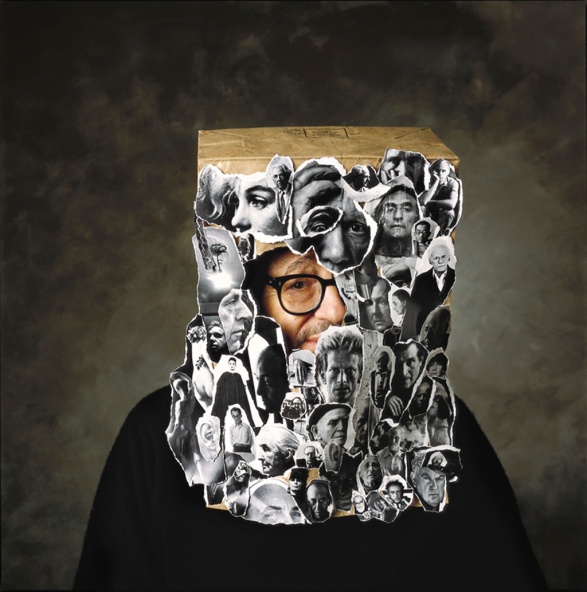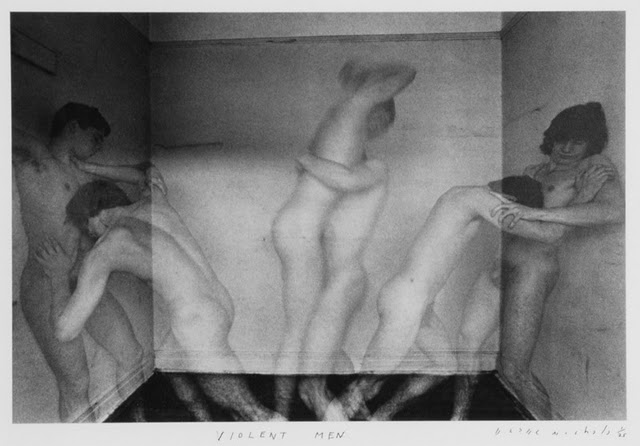 “Vincent Van Gogh carried a ladder into a field of sunflowers, leaned it against a cloud and climbed to heaven”.
“Vincent Van Gogh carried a ladder into a field of sunflowers, leaned it against a cloud and climbed to heaven”.
Photo by Duane Michals
“At Arles where rolls the Rhone
In the atrocious midday light
A man of phosphor and blood
Gives a haunting groan
Like a woman giving birth
And the man flees howling
Pursued by the sun
A sun of strident yellow
To a whorehouse near the Rhone
The man comes like a christmas king
With his absurd present
He has the blue and gentle look
The true mad lucid look
Of those who give life everything
Of those who are not jealous
And shows the poor child
His ear couched in the cloth
And she cries without understanding anything
Imagining sad omens
And looks without daring to take
The frightful tender shell
In which the moans of dead love
And the inhuman voices of art
Mix with the murmurs of the sea
And die on the tiling
In the room where the red eiderdown
Of a sudden bursting red
Blends this red so red
With the much more redder blood
Of half-dead Vincent
And wise as the very image
Of misery and love
The nude child all alone and ageless
Looks upon poor Vincent
Stricken by his own storm
Which spreads on the tile
Onto his most beautiful painting
And the storm runs out indifferent
Rolling before it its great barrels of blood
The dazzling storm of Vincent’s genius
And Vincent stays there sleeping waking croaking
And the sun over the whorehouse
Like a mad orange in a nameless desert
The sun on Arles
Howling turns around.”
Jacques Prévert


























































